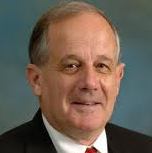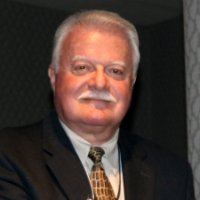About PLMAPLMA (Peak Load Management Alliance), a member-led 501(c)(6) nonprofit organization, was founded in 1999 as the voice of load management practitioners. Today, PLMA has ~190 member organizations, including private and publicly owned utilities, technology companies, energy and energy solution providers, equipment manufacturers, research and academic organizations, and consultants. As U.S. and global energy markets evolve, PLMA strives to offer timely programming and training opportunities, as well as a forum for its member practitioners to share expertise in dynamic load management, demand response, and distributed energy resources. Member practitioners take pride in sharing their knowledge, experience, and ideas with the goal of educating one another on a range of topics. These topics span load management programs, price and rate response, regional regulatory issues, technologies, and much more. PLMA is inclusive of all member practitioners and encourages any organization with an interest in dynamic energy management to join us. A Peer-to-Peer Forum for Sharing Load Management Expertise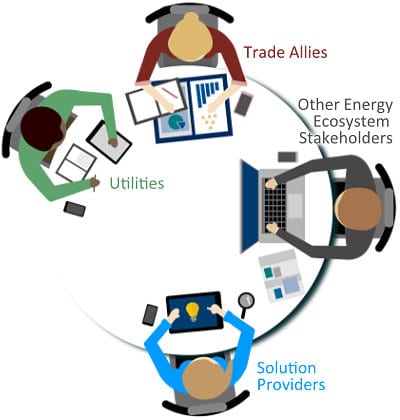
PLMA (Peak Load Management Alliance) seeks to advance practical applications of dynamic load management and distributed energy resources by providing a forum where members educate each other and explore innovative approaches to program delivery, pricing constructs, and technology adoption. For two decades, PLMA conferences, educational programs and networking opportunities have brought member organizations together to develop, implement and share proven practices in a peer-to-peer network – offering load management leadership for the energy industry. Value for MembersAs the energy industry continues to evolve, incorporate demand response and distributed energy resources, and develop effective new ways to engage all of its customers, PLMA member practitioners share a common goal to realize the potential of tomorrow’s energy industry for the benefits of all stakeholders.
PLMA Partners with Industry OrganizationsWith our focus on load management, PLMA helps lead the industry by sharing expertise with other associations — partners working towards a more sustainable energy future.As an example of this collaboration, PLMA engages in research with industry partners, such as the Natural Resources Defense Council and the National Rural Electric Cooperative Association. Other PLMA industry relationships range from joint initiatives with the Smart Electric Power Alliance to co-produce webcasts with Greentech Media and Parks Associates and a newsletter co-published with Utility Dive. 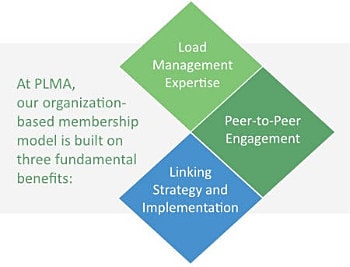
To further load management education, PLMA conducts several training courses hosted by energy utility companies and places volunteer presenters at events produced by organizations such as the Association of Energy Service Professionals and United States Energy Association. In addition, PLMA cross-promotes activities with Smart Energy Consumer Collaborative, OpenADR Alliance, and many other association partners. PLMA does not engage in lobbying or standards development, and we are not focused on any one technology area. Instead, we bring staff of member organizations together to collaborate and realize shared goals that can benefit all energy industry stakeholders. PLMA History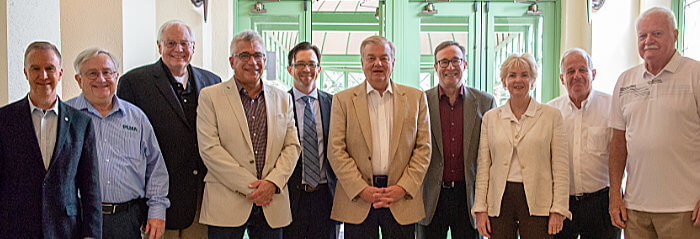
PLMA Founders, Chairs and Executive DirectorsPictured left to right: Ed Cooley; Ed Thomas; Dick Preston; Paul Tyno, Michael Brown; Ross Malme; Rich Philip; PLMA was founded in 1998 by Joel Gilbert, P.E. who saw a growing need for a collegial organization where professionals grappling with peak demand issues could gather, share ideas, and create solutions. Joel partnered with Elliot Boardman to serve as Executive Director and together they organized the first meeting to test the concept. When the markets peaked that summer at more than $4,000/MWh, the meeting sold out and the after meeting became the organizational forum for PLMA. It is fun to look at what led up to this. Joel was working as a consultant on a peak shaving program Northeast Utilities (NU) was designing. The electricity markets were just first facing locational prices, and NU wanted to know what the economics of peak shaving might look like in their most congested zone in Southwest Connecticut. After studying several years of pricing, Joel saw a clear trend - the value for congestion-relief was rising rapidly in Southwest Connecticut. The value for operating standby diesel generation was now clear, but the only business case NU and others were considering was total interruptible tariffs to capture this opportunity. The idea of letting customers displace their actual hourly-use of power by paralleling the generator was still not acceptable nor popular. As the project moved along and the next summer of data was available, Joel could see price spikes becoming likely. About the same time, Elliot Boardman, who was the Executive Director of the Association of Energy Service Professionals invited Joel to speak on a panel with Neil Wolkoff, the VP of Operations at the New York Mercantile Exchange (NYMEX), to discuss the future of energy trading. Neil and Joel became instant friends as a result and Neil encouraged Joel to think through how to build a subordinate exchange to aggregate demand side resources so they could be traded against the supply side agreements on their exchange. That conversation led Joel to design the Demand Exchange, the first online energy trading platform, at Apogee, and launch it first at Coweta Fayette and Entergy. Joel contacted Elliot Boardman and suggested he and his wife Pat join himself and his wife Susan for a brainstorming session in Atlanta to consider forming an organization focused on this issue. They met and decided that, with the encouragement and financial support of Neil Wolkoff, it was worth taking a gamble on holding the first meeting. The price spikes Joel forecasted happened at ECAR that summer, shocking the industry into awareness. No one except Joel could believe there could be a price in the wholesale electricity market over $4,000 per MWh. PJM never anticipated this either and had limited their price to three digits, so their markets hit $999 for hours on end to accumulate these high prices in the individual hours. Needless to say, that first meeting of the now PLMA in Florida was an absolute sell out. Ironically, it is now called the infamous Hurricane Meeting because one hit just as the meeting ended. The final session at that meeting was to decide whether there was a need for an organization and what should it be called. And the rest is history. PLMA Board Chairs
Executive Directors
Conference Locations
|







